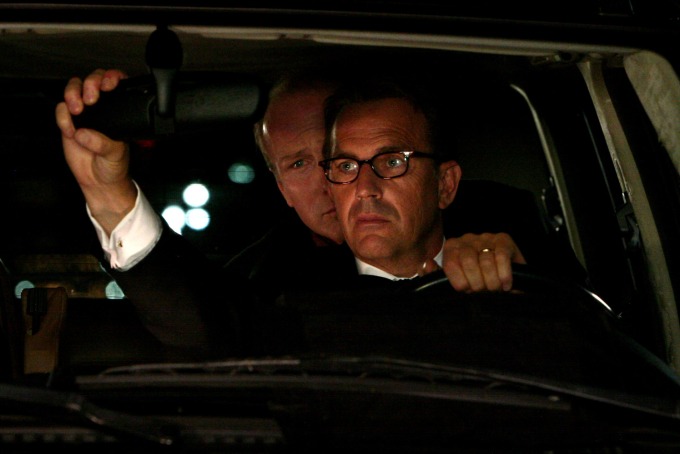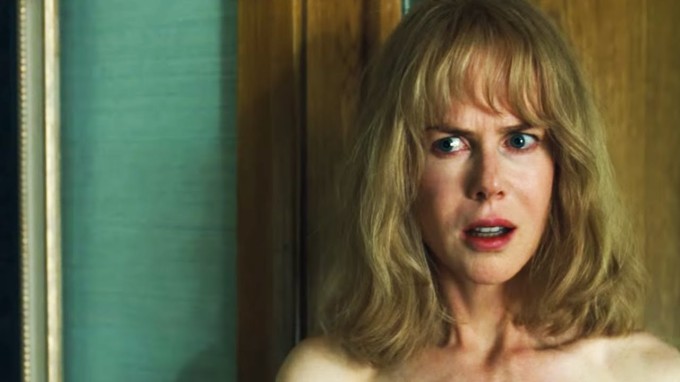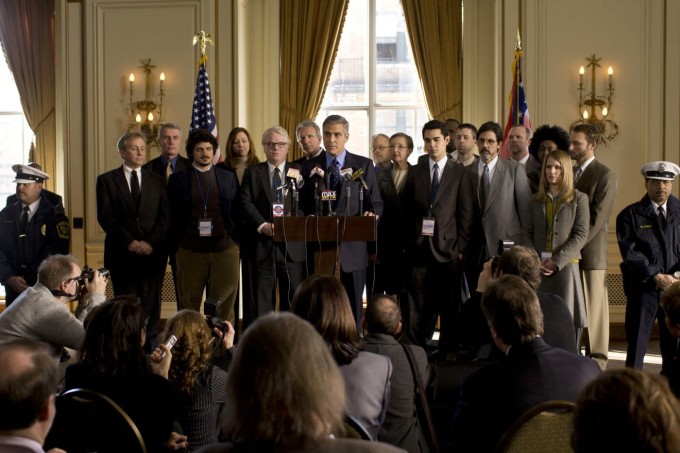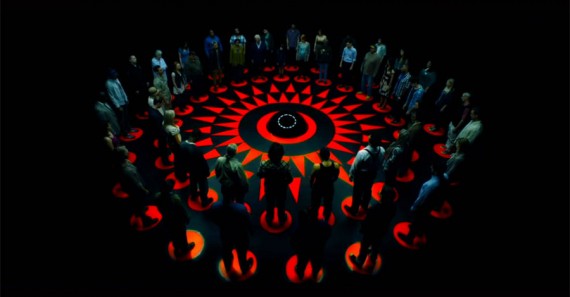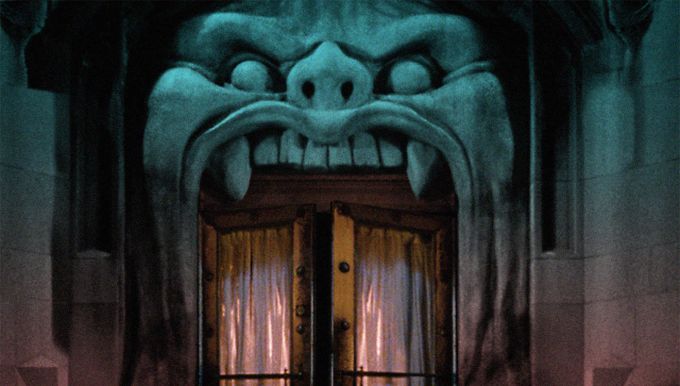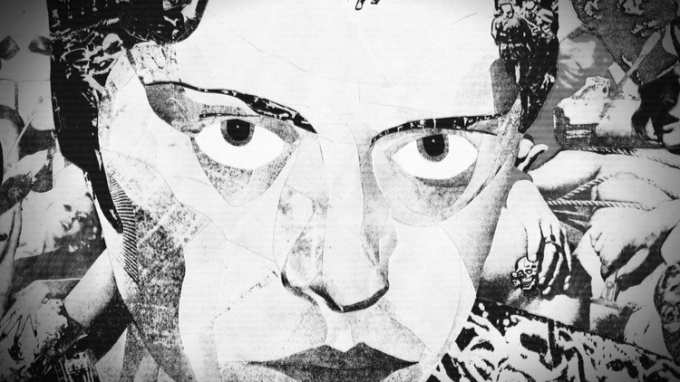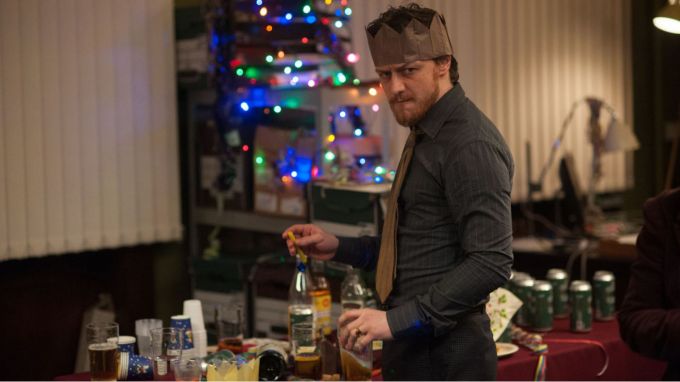
Let’s not split hairs: Suicide Squad is a veritable How-To manual in making an absolute incoherent catastrophe of shambolic narration, cynical pandering and intensely problematic racial and sexual politics. And yet, somehow, I didn’t hate it.
It’s actually interesting how paradoxical this film’s existence really is. What feels like a good 20 minutes of the film’s beginning is literally someone eating steak, going through a file, and talking about some – not even all – of the characters who are to be rounded up and become the originally named “Task Force X,” aka the “Suicide Squad” in question. Sure, there are flashbacks contained within the description, but only really as visual aids to the narration – after all, if the introductory scenes to these characters were considered strong enough, they wouldn’t need some suits explaining to us who these people were, or what their motivations are. So, although this is essentially an action whose intended audience is clearly the exact age of the rating (15), the film-makers somehow figured that talking talking talking would be a preferable introduction to a motley band of super villains… and Captain Boomerang… who’s little more than a fake Tom Hardy, armed with a children’s toy. Ironically for a film that relies so heavily on exposition, nobody ever really stops to answer “why?” Why did you set this up on essentially a whim with virtually no provocation?Why do you think you actually need an ANYTHING Squad, when you believed yourself to be in control of a witch/goddess (which is it, by the way?)-possessed woman who can literally dash off to Tehran in half a second, steal nuclear documents, then dash back? Why do we spend so much time building up some sort of energy with the prison guard, for absolutely no pay-off? Why did you only introduce some of the villains in the file, then tack on a couple more halfway through? Why, when you’ve literally implanted bombs in the necks of each member of the Squad, does Rick Flag need Katana to help him control the team, at all? Also, why are we supposed to care about Rick Flag at all? Why are we supposed to care about anything?
Perhaps this is the conceit of the 21st century comic book film: they assume everyone walking into the cinema is a hardened fan, who’s seen everything, and blow anyone who isn’t. Certainly, when I saw The Avengers, with its bad guy from Thor using the weapon from Captain America, when all I’d seen was the first two Iron Man films, I felt genuinely punished for my complete absence of loyalty to this insidiously ubiquitous franchise. Suicide Squad proudly displaying what I can only imagine is a major spoiler from the end of Batman vs Superman: Dawn of Justice, which I have not yet seen, suggests exactly the same thing. Indeed, Suicide Squad shows such an aggressive bravado in its wholly unwarranted self-confidence, I almost feel as though it were daring me to question its, or its characters motives and motivations, beyond the most intuitively asinine.
Speaking of which, let’s turn to the characters: Deadshot, by virtue of Will Smith, is an enjoyable enough and watchable enough boilerplate Will Smith experience. His character’s been given a cute daughter and, my god, please Hollywood stop giving criminals cute daughters! just for a change, I’d like to see them be givenany other kind of motivation. (Mental note: watch John Wick, apparently his motivation’s the death of his dog. That works.) Diablo (Jay Hernandez) at least has an element of complexity, due to his sympathetic repentance for a truly terrible crime. However, he is for the most part reduced to a walking, talking racial stereotype, even if not too ugly a one. Killer Croc (Adewale Akinnuoye-Agbaje) is a disgustingly underused character, not only because Croc is invariably awesome, but also because he is being portrayed by an absolutely fantastic actor in Akinnuoye-Agbaje, who was without a doubt one of the best elements of the TV series Lost. He is also reduced to a disappointing racial stereotype – his “demands” at the end of the film apparently being a widescreen TV showing non-stop generic sexist rap videos, and a shelfful of Hennessy. Katana (Karen Fukuhara) is a bland racial stereotype (anyone see a pattern emerging?), with nothing but a samurai sword and a “you killed my father; prepare to die” storyline. Slipknot (Adam Beach)… well, we don’t know a single thing about him, other than the fact he is played by a First Nations Canadian, wasn’t even considered worthy of a backstory, and is killed before he’s said 10 lines. Seriously, this film is racially abysmal.
And then, of course, we have Joker (Jared Leto) and Harley Quinn (Margot Robbie). The portrayal of their relationship is utterly gross. It is depicted unambiguously as being one of an extremely controlling, coercive and abusive nature, and also depicted unambiguously as being one worthy of romanticisation. There are already multiple essays and articles on this topic, so I shan’t waste much time dwelling on this, here, but what’s really frustrating is that, if we are to see Harley as a character almost entirely defined by her devotion to an abusive, largely absent, psychopath, her response to thinking her puddin’ has just died in a helicopter crash is not going to be snuffling for two seconds and then sucking it up, buttercup, and putting a brave face on things. That’s just not how these things work. This film is so utterly lazy in its narrative threads, it will happily have 180º levels of inconsistency in its protagonists. Honestly, I think Jared Leto’s performance as Johnny Depp’s performance as Willy Wonka and The Mad Hatter’s performance as the Joker is reasonably passable. I mean, it without a doubt is the weakest performance I’ve seen committed to screen, from Cesar Romero to Mark Hamill, but that’s not saying all that much, considering the powerhouses all those performances have been. Arguably, the strength of his own, such as it is, lies almost entirely in its sporadic brevity. Contrary to what everyone’s favourite overrated emo, Ayn Rand-reading, marginalised community-appropriating asshole of an undeserving Oscar winner seems to think, a film named Suicide Squad – a squad of which Joker is not a member – was always going to be an ensemble piece in which Joker should not be a protagonist. Thus, he exists more as an idea – specifically an idea of pleasure for Harley and trepidation for everyone else – than he does as an actual game player. Harley’s existence in this film as a character removed from him is… debatable. However, she’s funny and well acted, even if she does keep spouting lines off of mass-produced Camden Market t-shirts from over ten years ago: “‘normal’ is a setting on the dryer,” yeesh.
Cara Delevigne as Dr June Moon / Enchantress, the possessed child archaeologist, is interestingly terrible. She does a reasonably steady job, when the two identities are separate, Enchantress being portrayed not at all badly by CGI but, by the time she takes over, the film-makers clearly decided it would be wrong to hide the beauty of a skinny white woman (though clearly not the beauty of an exceptionally attractive Black man), and thus strip her of all her dignity by sticking her in one of the most pathetically appropriative garbs I’ve seen since the sound era. I say “since the sound era,” given that June Moon / Enchantress’ headdress and ridiculous twitchy shoulder-based dance moves are clearly based upon the Evil Maria clone from Fritz Lang’s 1927 masterpiece Metropolis. Only difference is, whilst Brigitte Helm was clearly having the time of her life, throwing shapes in a ridiculous get-up, there’s absolutely no joy in the absurdity of Delevigne’s villain. Thus, we can only squirm in embarrassment and humiliation on her behalf.
Between the under-arm serves by way of humour, the trick-or-treat costuming, the inanely quotable lines, Suicide Squad painfully appears to be the filmic equivalent of Reading Festival. And then in comes the music, to confirm it all: “Paranoid,” “Ballroom Blitz,” “Sympathy For the Devil,” “Seven Nation Army” – these are all quite literally the songs you expect to be playing on the PA system before a bank holiday music festival headliner comes on, and they are all played, seemingly at total random, for no reason other than to have a blandly cool soundtrack. At least Kanye West’s “Black Skinhead” seems vaguely appropriate, playing whilst Deadshot – a bald, Black man – is on the screen. Seriously, this bloody film…
For some reason, though, there were just enough jokes to make me actually laugh, there was just enough action to keep me excited, and there was just enough charm in a couple of the performances – not least Smith and Robbie’s – to make sitting through all 130 minutes of this disasterpiece not quite the teeth-grinding, migraine-inducing nightmare I worried it might be. By no stretch of the imagination can I recommend this film to anyone. Is it that bad? Absolutely, but it’s not THAT that bad.
**

